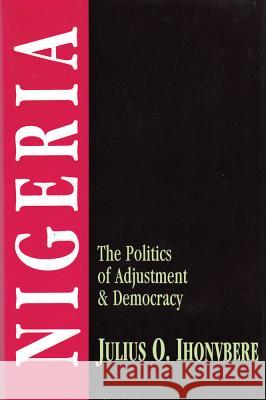Nigeria: The Politics of Adjustment & Democracy » książka
Nigeria: The Politics of Adjustment & Democracy
ISBN-13: 9781560000938 / Angielski / Twarda / 1994 / 231 str.
Nigeria is in a long-standing crisis. Military rule has suffocated civil society and has entrenched a culture of repression, corruption, and official irresponsibility. The reign of Ibrahim Babangida has resulted in near total economic disaster for the country. The situation is so bad, as Julius Ihonvbere shows, that Nigerians are now saying that the days of colonialism were better. In this major new study, Ihonvbere searches out the sources of Nigeria's predicament. He finds them in the country's historical experience, and the consequences of that experience since gaining political independence. Nigeria has become a society in which its citizens live in fear and its youth emigrate to other countries. It is now impossible to survive in the country without belonging to a certain religion, living in a particular region, having connections with top military officers, and being involved with some form of corruption. Even involvement in drug pushing or extrajudicial murder is no longer considered a crime, but a circumstance of life. Such conditions have encouraged the emergence of several popular organizations. New alliances of students, workers, women, youths, intellectuals, professionals, and the unemployed transcend ethnic, regional, and religious differences. For the author, it is at this emerging level of struggle and interaction that the future of Nigeria lies. This work examines several critical, but often overlooked or underresearched aspects of Nigeria's political economy. Ihonvbere analyzes in detail Nigeria's foreign policy, its economic crisis, the military, the decay of its educational system, and democratization. He pays particular attention to the paradoxical connection between IMF/World Bank-supervised structural adjustment and the struggle for democracy. His book will be of interest to experts hi socioeconomic development, foreign policy analysts, students of military science, and scholars of African politics and history.











